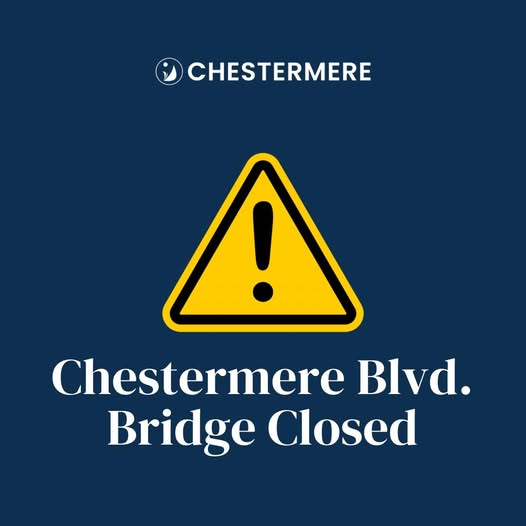Chestermere council carried a motion to have city administration prepare a detailed report for an in-camera discussion to address the long-term planning of the East Acreages Area Structure Plan (ASP) which will be presented prior to the end of 2019.
“We want to make sure everybody is on the same page here,” said Chestermere Mayor Marshall Chalmers.
East Acreages is a 138-hectare area on the eastern border of Chestermere, which was annexed into the city nine years ago.
“Through the annexation process to annex 6,500 acres there was a requirement for the city to the front end the planning costs for existing acreages throughout Chestermere,” said Director of Community Growth and Infrastructure at the City of Chestermere John Popoff.
“The intention was always to have the property owners act as the developer and pay for the work that occurs on their land,” he said.
There has been an expectation that the ASP is the panacea that will allow landowners to subdivide their land and capitalize on the land, said Chief Administrative Officer (CAO), Bernie Morton.
During the Aug. 13 Committee of the Whole meeting, Morton heard varying explanations of what annexation means for East Acreages owners.
He heard from residents that when they agreed to the annexation, they were under the understanding that the lands would be serviced as opposed to could be serviced.
He also heard that with the serviced land, the subdivision provisions would be outlined in the ASP.
Finally, he heard if the city couldn’t accomplish servicing the land and providing and providing a process for subdividing the land, the owners want the East Acreages to be given back to Rocky View County (RVC).
“Neither of these things are detailed in an upfront, transparent, and authentic way to the resident,” Morton said.
There are numerous stages when planning for land, such as having a municipal development plan which sets the main policy framework and states the goal.
Neighbourhoods are built from ASP’s, which provide a vision for a particular area.
Developers who come into Chestermere are required to provide an ASP while preparing additional studies which provide more clarity to issues including transportation, physical impact, and wetland preservation.
“There is a whole host of other issues that go along with ensuring the planning is well-thought-out and is supportive of a technical rationale,” Popoff said.
“If council was to approve the plan, there is a lot of work left in this process. It is not going to lead to an immediate subdivision,” he said.
Many studies need to occur, and the landowners are required to work together to be developers and find ways to share common interests of the land, before becoming a full urban standard.
“In discussions with our CAO, to move to the next level there are going to be significant studies, which will take at least two years to get the studies in place,” Popoff said.
The studies that are required will have to be outsourced, because it is outside the current scope of work of city staff.
“If we’re asking them to do studies which are very labour intensive, then that takes away from the processing of applications and other work that we need to do to keep our organization fluid and moving,” Morton said.
“It’s a matter of capacity. Some of these studies are very technical and require a very specific specialization to complete properly,” Morton said.
He added, “In my perspective, we try to do as much as we can in house, related to engineering and planning, but when you try to do more than what your capacity allows you, you are going to fail.
“Failure in this particular case for us, is not an option, because our residents have been waiting a long time for this to come, now it’s about getting it right.”
Before the subdivision stage, requirements such as a stormwater management plan, transportation assessment, and environmental site assessment must be completed.
At the subdivision stage, another level of detail in terms of planning must be completed, such as layout, road widths, and intersection widths.
“There is a lot of complexity and a lot of work that goes into making neighbourhoods approved,” Popoff said.
“This process has been going on for a very long time,” he added. “The development process is not straight forward. It’s complex and requires a lot of effort and knowledge. I can appreciate that it can be very confusing. It can be confusing for us.”
Popoff welcomes the opportunity to hold a public meeting or a formal consultation where city administration spends time talking about ASP’s, outline plans, land use, and subdivisions and how everything interrelates to the development process.
“We have to always understand that it’s the health and safety of residents and ensuring that the communities that get built protect the environment, provide safe transportation, and have reliable servicing, that’s the intention,” Popoff said.
“Somebody who ends up purchasing likely the biggest investment in their life, which is their home, has had these pieces taken care of, and can be assured that they have a home and a product that will last for a very long time,” Popoff said.
“This is one step in the process. This is developing policy and a vision for them to be able to rally around that vision and then to find the implementation mechanism to make that vision occur,” he added.
Chestermere Deputy Mayor Ritesh Narayan added, council has to be very prudent with the East Acreages ASP.
“Our undertaking of due diligence in this matter will dictate outcomes, because whatever we decide with East Acreages is going to have ramifications on the other developments,” Narayan said.
East Acreages resident Peter Tindall believes that most people voted in favour of the annexation based on assurances from the city.
“The annexation Board Order No. MGB 018/09 states, the town attested that it is confident that there will not be any issues servicing the land contained in the proposed annexation area,” Tindall said.
He added, “Chestermere’s Master Utility Plan of 2017 makes it clear that Chestermere has no intention of servicing the East Acreages for at least 20 years which is essentially forever.”
After rejecting the previous ASP, East Acreages residents are now faced with a new one which includes interim serving.
“The requirements they are trying to foist on us quite frankly will make it virtually impossible to subdivide our land,” Tindall said.
The requirements include a minimum parcel size of two acres, all new wells must have a comprehensive aquifer study, there must be pump out tanks for all wastewater, and any subdivision applications must include drawings of what the parcel would look like at buildout to eight units per acre.
“This plan is completely unacceptable. What the City is proposing will make it essentially impossible for us to ever realize the value inherent in our property and is oppressive to the landowners who have been paying taxes in good faith to Chestermere for 10 years,” Tindall said.
He added, “In my opinion the best option would be for Chestermere to look at cancelling the annexation and returning us to RVC.
“Alternatively, the city could ask RVC if it would be possible to connect us to Rocky View’s water system. RVC appreciates the issues surrounding rural development and Chestermere clearly does not.”
A lot has changed since Betty Lllingworth moved to East Acreages, including the annexation, extensive communication, meetings, and emails.
“We still are not able to access Chestermere City water of sewer, and we don’t have an ASP,” Lllingworth said.
Adding, “Nothing has really changed for us in 10 years. Considering the ongoing extensive development and growth of Chestermere in a number of areas, when is the City of Chestermere going to step up and constructively help the East Acreages become a real community.”







